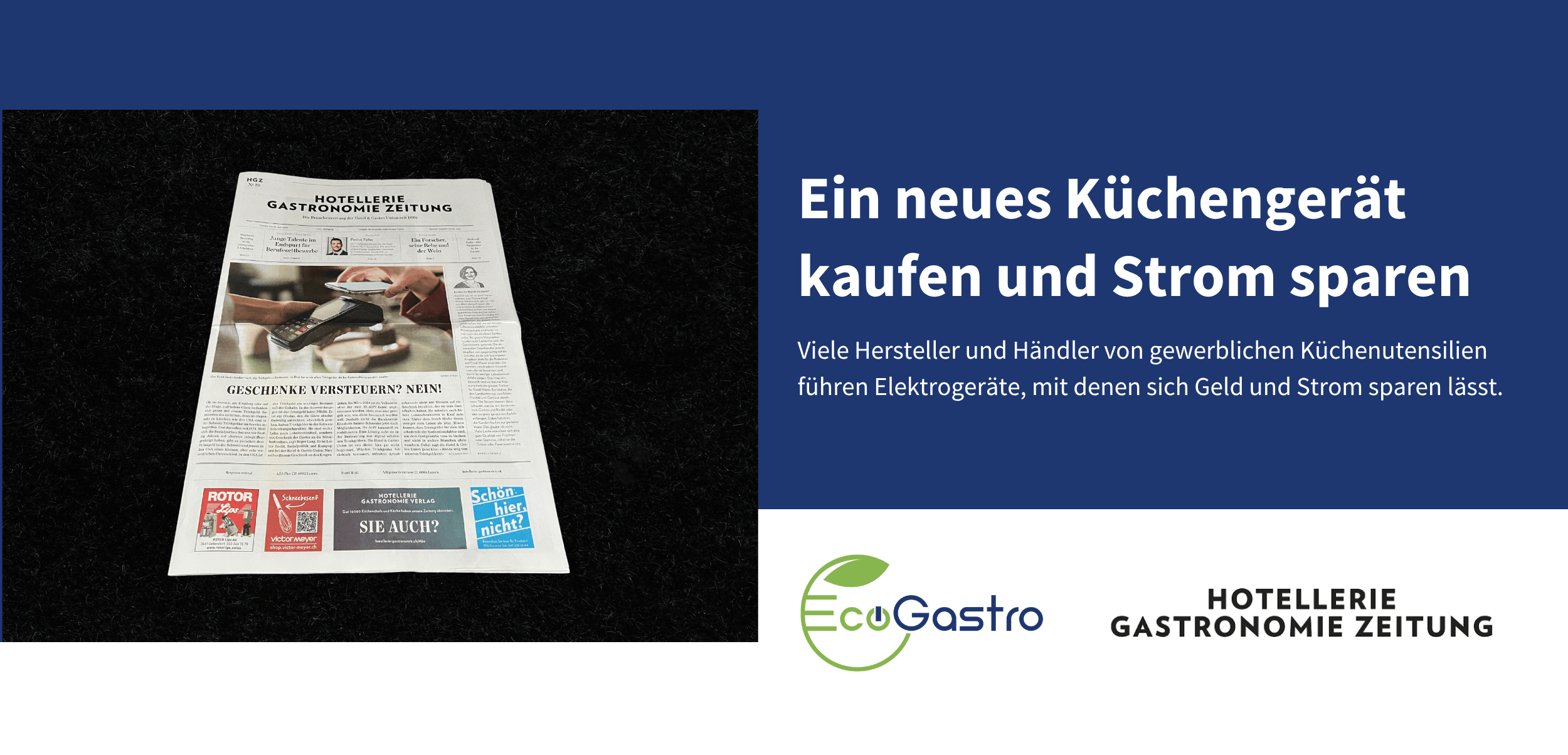Turning old into new
Turning old into new
Whether in terms of food, goods purchasing or resource consumption - restaurateurs should consider sustainable concepts if they want to be successful in the long term. When using small kitchen appliances, for example, it is worth taking stock in an ecologically and economically sensible way.
There are many electricity consumers in a catering business. In addition to the dining area with lighting or refrigerated counters and hot plates in canteens, the kitchen is one of the main energy guzzlers. Refrigerators, dishwashers, ovens, but also the many little helpers such as deep fryers, bain-marie, combi-steamers, salamanders, vacuum cleaners, sou-vide cookers, etc. need electricity. Pots and pans also consume more or less energy due to their special alloys and features. With rising energy costs and the responsibility to keep both CO2 emissions and the ecological footprint low, it is worth taking a closer look and replacing old appliances with new ones if necessary. Experts agree that only those who work economically and are environmentally conscious can be successful in the long term.
Energy efficiency brings profitability
"Sustainability in the food service industry is important," says Martin Räber, "as around a third of our ecological footprint is caused by food. The expert is not just referring to environmentally friendly supply chains, avoiding food waste and efficient waste management. Sustainability in the catering industry also means conserving resources in terms of saving water and electricity, he emphasizes. Räber is the managing director of the Swiss company "Ecogastro". It advises restaurateurs on sustainability in the catering kitchen. This also includes highlighting the benefits of replacing small kitchen appliances. In many commercial kitchens, the small appliances are already several years old. As they are still doing their job, there is no reason to replace them, not least because of the cost. But Martin Räber disagrees. "In principle, it's worth replacing older appliances with more sustainable ones, as they are better insulated and have intelligent controls. New appliances also offer functions such as heat recovery and automatic switch-off." Räber cites deep fryers and combi-steamers as examples. New deep fryers score points for heating up the oil more quickly and maintaining the temperature more efficiently thanks to better insulation of the control systems. Added to this are grease filters that keep the oil usable for longer. More intelligent control systems for temperature and humidity levels are installed in modern combi-steamers. Heat recovery systems use waste heat to heat water or air in the appliance. Smaller cooking chambers enable more efficient preparation of small quantities and have better insulation. In addition to these specific advantages of modern appliances, the general rule is that appliances in the best energy efficiency class (A+) make optimum use of the energy supplied. Less energy is wasted and the overall energy consumption of the operation is reduced - the electricity bill is lower. In addition, energy-efficient appliances often work more quietly, which improves the working environment and increases the satisfaction and productivity of kitchen staff. This aspect should not be forgotten in the often hectic atmosphere of commercial kitchens.






